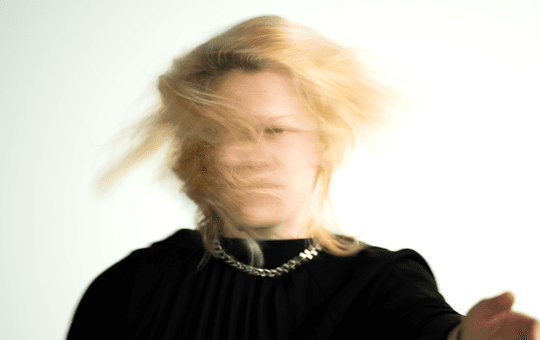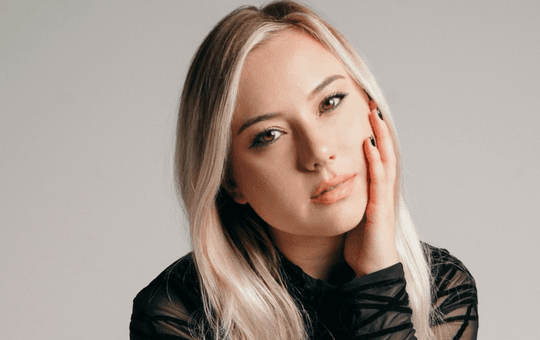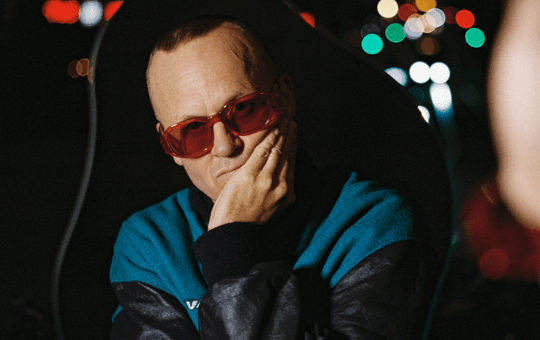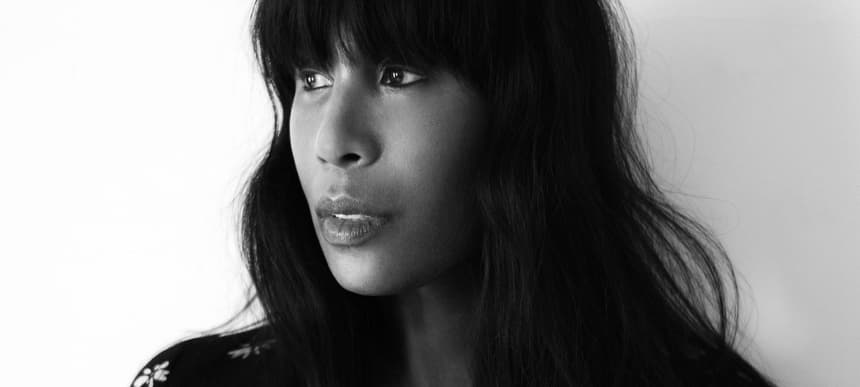
"Change comes from having control of the narrative": Honey Dijon on returning dance music to its roots
Without the queer Black and Latino foundations that birthed electronic house music in the late 70s and early 80s, dance music would be a shell of the cultural force it is today. As a Chicago native and trans Black woman, DJ Honey Dijon embodies the very roots of dance music which she feels has been erased over the years in the pursuit of mainstream appeal. Smoothly operating between techno, disco and house when orchestrating party-goers on dance floors across the globe, Honey has branched out into the worlds of artistry, fashion, sociology and beyond since launching her career in New York during the late-90s.
The dance floor is often thought of as a safe place for freedom of expression and diversity, where people can put their differences aside and unite through the power of music. As a mainstay on the clubbing circuit, however, Honey knows that there is still much to be done before this idea becomes a reality.
A recent report by the Ballantine’s True Music platform found that 1 in 3 music lovers globally have experienced discrimination and a further 84% have witnessed it on the dance floor. Ballantine’s is setting out on a mission to address this through a series of commitments and initiatives, including a six-figure fund to support the emerging music collectives chosen by a series of industry-leading figures. Spearheading the journey towards a positive cultural reset, Honey has teamed up with a roster of artists who are helping the conversation and driving change within the music industry, including the likes of SBTV founder Jamal Edwards MBE; pioneering dance music collective, HE.SHE.THEY.; Madrid-based female DJ collective, Chica Gang; Brazilian black and LGBTQIA+ artistic collective, Afrobapho; and South African musician Dope Saint Jude.
We sat down with the DJ to discuss her role on the platform, covering topics such as tokenism in the music industry, how real change is made within dance music, and who she chose to receive her £10,000 grant from the Ballantine’s True Music Fund.

What about the Covid-19 pandemic do you think made people realise the need for a cultural reset in the music industry and society at large?
Black music has always been colonised and whitewashed for mainstream audiences. And that’s no different in dance music. This culture was created and started by people of colour, queer people and it has gone from culture to entertainment. So, I think we’ve lost a little bit. I think a lot of the voices have been erased because it doesn’t appeal to the mainstream, which is another word for white, in my opinion. There’s a saying that my friend likes to like to say; ‘You know, people love black culture. They just don’t like black people.’ So, I think we need to have constant reminders and what I try to do in my work, is to keep those narratives going and to remind people of where this started and to give visibility to those people that have been erased.
Could you describe your vision of a positive cultural reset?
I think we need to dismantle white supremacy, oppression, misogyny, patriarchy, religious dogma. We need to dismantle a lot of things for our lives to be able to be lived fully and completely on our own terms. I don’t think music is any separate from art or politics or anything. It’s all intertwined, and it’s all interconnected because music reflects the human experience. And so, when one of us is free, all of us are free.
Why is it so vital that the dance floor in particular is able to provide a safe space for everyone?
It’s important for me to remind the people who I’m entertaining of where they’re coming from and to try to build a sense of community. I’m not only entertaining, but also trying to educate and inform, so that the people on the dance floor can explore the music that stems from marginalised culture in more depth and realise that this all started from a community that was a safe space for people that were marginalised from mainstream culture.

What made you want to get involved with the work the Ballantine’s True Music platform is carrying out?
Well, I think it’s important to be on as many platforms as possible to own my own narrative and to be able to tell my story in my own words. And so, I think it’s great to work with companies that are trying to do better. In the words of Oprah, “When we know better, we do better.” So, I think it’s very important to be able to be able to tell my story in my own words on a very visible platform.
How has your own experience of dealing with intersectionality influenced your desire to drive change and create spaces for others to come through in the industry?
The problems behind the scenes are that many institutions are still being run by hetero-normative white men, from record labels to festivals to clubs, it’s still run by predominantly straight white men. So, this conversation of diversity is quite funny for me, because we’re always talking about what it looks like in front of the lens, but not behind the lens. It’s always all diverse but that’s not interesting to me. I don’t care about line-ups because that can feel like tokenism in a way. It’s whoever’s hot now,
whoever can make me money, that fits this sort of box checking. So, for me change comes from having control of the narrative and being able to have queer or non-white promoters and festival owners succeeding and supporting artists and staff who are also non-hetero and/or people of colour.
Are there any noticeable differences from when you started your journey in the music industry to now?
Even five years ago, we weren’t even having these conversations. It was just assumed that our DJs were male. I think when the MeToo movement happened, Black Lives Matter happened and Trans Lives Matter happened there was a cultural shift. You know, I think that is what happened in dance music, so that really gives me hope. I hope these conversations continue to evolve and that we start asking really difficult questions. I think what gives me hope for the future is that someone like myself can have success in this industry. I think I stuck around long enough for there to be change. There are still so many things that we need still to talk about. I mean, women still deal with a lot of oppression, you know. There’s still so much work to be done about it.
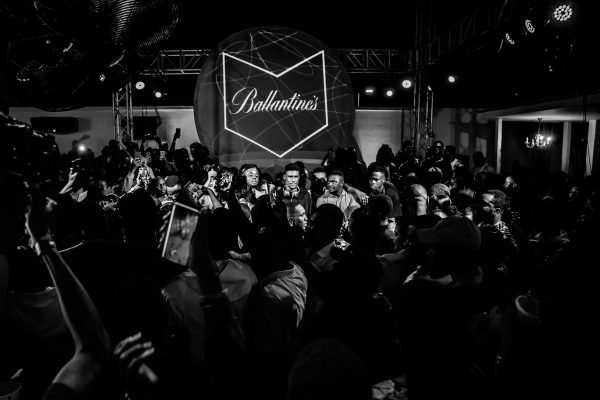
What is the role of the creative/arts sector when it comes to bringing social justice issues to the forefront of public conversation?
Well, a lot of people don’t realise that the birth of dance music also coincided with the beginning of the AIDS epidemic. And so, a lot of incredibly talented people died during that period. A lot of that information from the people of this culture has been erased or hasn’t been recognised. So, I think what I need to do personally and through my work is to constantly put back into place those things that have been erased or silenced, otherwise people may not have ever known of those people. A lot of times people don’t even know where the music that they’re dancing to comes from. A lot of people probably don’t realise that techno is from Detroit. A lot of people probably think techno was created in Berlin.
Has the positive response towards diverse line ups and diverse dance floors in the aftermath of Covid-19 made you optimistic for the future of the music industry?
Like I said, for me, this conversation about diverse line-ups to me isn’t about diversity. This is you know; this is still capitalism and tokenism about who can be put on to make more money and for me, to stay modern and relevant. Like I said, we need to be in control of the narratives behind the scenes and having diverse promotors, production people, bookers, talent agents. You know, we need to see a reflection of the world behind the camera. I think once you have that, you have diverse crowd.
Who have you chosen to receive your £10,000 grant from the Ballantine’s True Music Fund and why?
I have chosen Batekoo a party collective, that comes from Salvador and are an active force within the Brazilian LGBTQ+ POC community – which I love. They are on a mission to banish homophobia and enlighten the people of Brazil. The nightlife for queer POC Brazilian’s has many obstacles which they are working hard to dismantle for the future generations of young LGBTQ+ Brazilians. Hopefully with this money from Ballantine’s, they can continue to create safe dance floors for all music lovers.
Details on Ballantine’s ‘Resetting The Dancefloor’ report can be found here.
